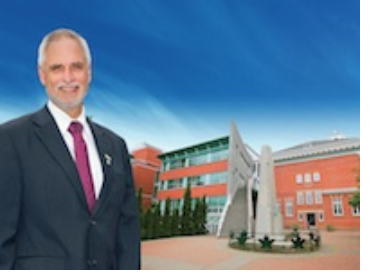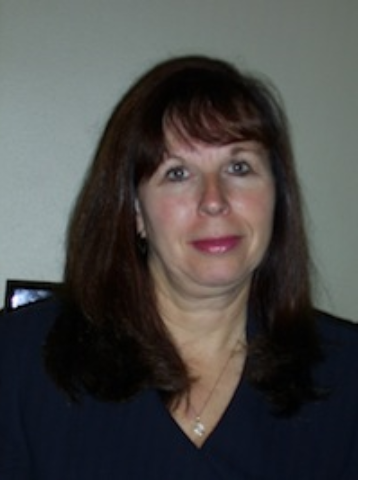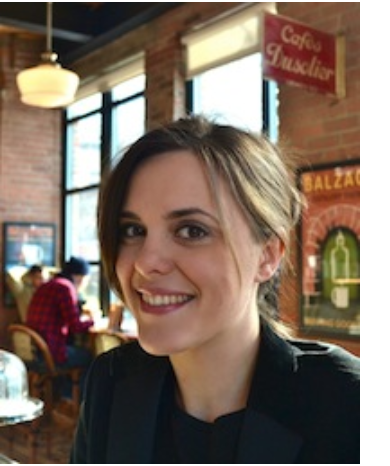If anyone has a finger on the pulse of contemporary Canada, it’s John Wright (BA, 1980). He knows, for example, that Quebeckers believe in legalizing marijuana and that despite British Columbia’s reputation as a province of nature lovers, Maritimers care most deeply about the environment. Based on all he’s learned, Wright characterizes Canada as patriotic, tolerant, pro-monarchy—and opinionated. “When you look at public opinion on many issues over a long time, you really feel its currents,” he explains. “You understand the rhythm and temperament of the country. Canada is a body—it has emotions and a way of thinking.”
The former UTSC student council president and campus radio station manager has spent the past 26 years analyzing the opinion trends of the nation at the Canadian arm of Ipsos, a global independent market research firm that operates in 88 countries.
As senior vice president of its public affairs strategic research division and managing director of its Global @dvisor international poll, Wright is the media spokesperson on policy, politics and consumer trends.
“I work with a global research team that constantly polls the world on events and issues, from energy use to human rights to social problems,” he says. “I study what humans in Canada do and think. Public opinion is about how people collectively think.”
Collecting data that give insight into the state of the country depends on devising effective polls. At Ipsos, most of the research is done online with panels of around 400,000 people.
Wright attributes his knack for posing the right questions to a thorough understanding of Canada’s social and political landscape.
Studying history and political science at UTSC gave him a solid knowledge base that helped to launch his career as a pollster.
“I found history most interesting because it’s how we gain understand- ing of today’s institutions and how they evolved,” he says. “The work I do at Ipsos relies on understanding the history of our institutions, issues, and events. Getting an accurate reading of public opinion requires knowledge of this historical context and having a good institutional memory.”
Wright cites the mid-’90s’ same-sex marriage debate as an example of when context and careful questioning were essential in capturing a faithful picture of the country’s views. Knowing Canada to be tolerant, Wright and his team posed a question about a “civil marriage,” removing the divisiveness of religious church marriages and the option for none at all.
“We created a middle ground, and when the results came in, they were explosive,” he says. “By adding this one dimension, 70 per cent of Canadians accepted same-sex marriage. It changed the nature of the country’s debate and the way people talked about the issue.”
It’s that mutability of public attitudes—and how demographic and population shifts affect them—that fascinates Wright. He and co-author Darrell Bricker have written two national bestsellers, and a third book, DemandShift, due in 2016, is about Canada’s changing demographics and immigration patterns and their effect on decision-makers and markets.
“People like me are interested in how people think and what affects them,” he says. “Going to work is like Christmas every morning. I can’t imagine being in a job where I’m not learning something every day.”
 When Adrian Foster (BA, 1983) and his family moved to Clarington, Ontario, he got deeply involved in community organizations. In 2003, he received the Queen Elizabeth II Golden Jubilee Medal for his extensive community service. He soon became a local councillor, was elected mayor in 2010, and is now in his second term.
When Adrian Foster (BA, 1983) and his family moved to Clarington, Ontario, he got deeply involved in community organizations. In 2003, he received the Queen Elizabeth II Golden Jubilee Medal for his extensive community service. He soon became a local councillor, was elected mayor in 2010, and is now in his second term.
Foster’s vision for Clarington is rooted in service and quality of life. “It’s easy to be cheap and build an area without amenities, but creating a great place to live is all about quality of life and relationships.”
Foster’s collaborative spirit is evident in his arts and culture initiatives, which he believes are essential to a thriving community. He started A Gift of Art, a not-for-profit collective that bolsters local artists’ careers; and For the Love of Art, a gala that brings the business and artistic communities together to benefit the Visual Arts Centre of Clarington. In 2013, he received a second national honour: the Queen Elizabeth II Diamond Jubilee Medal.
Foster studied psychology and French at UTSC, which led to work with children with disabilities and then a 26-year career in financial services. He credits his ability to wear many hats to the breadth and diversity of his education.
“As mayor, I know a little bit about a ton of different things,” he says. “Because I have a broad skill set and education, it’s easy for me to embrace new roles.”
 Sue Graham-Nutter (BA, 1981) is a city-building Renaissance woman.
Sue Graham-Nutter (BA, 1981) is a city-building Renaissance woman.
She started several Toronto festivals, including Krinos Taste of the Danforth and the Roncesvalles Polish Festival, which continue to flourish today. She’s also grown a consulting practice, Affinity Marketing and Public Affairs, working the gamut from government to non-profits to public television.
At UTSC, she studied Co-op public administration, shaping her ability to succeed in a breadth of industries.
“I learned how to build partnerships between layers of government and community,” she says. “My career path is not linear, but the common link is my expertise working both with and within government.”
Graham-Nutter’s current focus is health care. As executive director of capital redevelopment with the Rekai Centres, she manages a long-term care home in downtown Toronto and is also working to build a new home with an Alzheimer’s and dementia support unit.
“Making a difference in society has always driven me,” she says. “I want to help families and create homes in which residents can live in dignity.”
Her desire to make a difference also encompasses volunteer work. Graham-Nutter is the three-term chair of the UTSC Campus Affairs Committee.
“It’s an extension of my interest in city building through public projects,” she says. “As a member of student council years ago, I was involved in advocating for the Bladen Library. It’s very rewarding for me to return and participate in the further development of UTSC.”
 Raised in the world of hospitality and property management, Reetu Gupta (BBA, 2005) remembers handling rental agreements and shadowing general managers from a young age. Now, as a vice president, she heads the sales and marketing of her family’s business, the Easton’s Group of Hotels, which her parents started 36 years ago in Port Hope. It encompasses 15 hotels across Ontario and Quebec.
Raised in the world of hospitality and property management, Reetu Gupta (BBA, 2005) remembers handling rental agreements and shadowing general managers from a young age. Now, as a vice president, she heads the sales and marketing of her family’s business, the Easton’s Group of Hotels, which her parents started 36 years ago in Port Hope. It encompasses 15 hotels across Ontario and Quebec.
After completing her studies, Gupta headed the opening of two new hotels and banquet halls. In 2009-10, the company added six new hotels to its roster under her direction.
Currently, Gupta’s focus lies in rebranding the company as the Gupta Group and developing its new real estate division.
“Marketing is a passion of mine, and working with my family is a blessing,” says Gupta. “I’m able to talk about crazy marketing plans, and I have a lot of autonomy.”
She illustrated her flair for out-of-the-box thinking with the 2011 launch of the company’s first condominium development, King Blue, in the heart of Toronto’s entertainment district. Her marketing plan focused heavily on social media, an unusual tactic at the time. “The area is inhabited by young, technologically driven professionals,” she explains. “We talked directly to that demographic through social media to build momentum.”
Gupta lauds the entrepreneurial career path, which allows her to combine her passions.
“One of the great things about working for my own business is that I have the flexibility to work on personal projects,” she says. An avid fashion lover, Gupta is creating a clothing line that marries Western designs with South Asian fabrics. She plans to unveil the line, called Maya, in 2016.
 During the summer months, Heather Kanabe’s professional calendar reads like a full dance card.
During the summer months, Heather Kanabe’s professional calendar reads like a full dance card.
“When July hits, the race to the festival begins,” she says about the lead-up to this year’s event on September 27. Kanabe (BA, 2008) is festival director of The Word on the Street Toronto, which for 35 years has been the city’s largest free outdoor book and magazine fair celebrating the written word and literacy. She manages artistic programming and overall festival production—including author presentations, workshops, and a marketplace. The event attracts more than 215,000 attendees and about 200 exhibitors annually. Behind the scenes, Kanabe handles grant writing, finances, logistics, and staff and board management.
“It’s the one time of year when the whole publishing industry mingles with the public,” she says.
Kanabe cultivated her arts leadership acumen in UTSC’s Arts Management, a competitive program designed to provide students with a strong basis in the knowledge and skills necessary to succeed in the arts business.
“The program really stimulated my career,” she says. “Arts Management is made up of an intimate group of people who know from the start that they want to manage arts organizations. It changes your mindset because you realize you’re pursuing something you love and your return is the ability to make a contribution to the discipline.”
Kanabe completed the field-placement stream, which enhances students’ understanding of arts management through a minimum of two non-credit placements.
She cites her Co-op positions at the Royal Ontario Museum, the Scarborough Arts Council, and Women in Film & Television (where she worked for six years) as conduits to important connections within the Toronto arts sector.
Under Kanabe’s leadership, the event has received an increase of $120,000 in grants and a 25 per cent budget boost. This year marks a watershed for the festival: Kanabe has spearheaded an initiative to move from Queen’s Park Crescent (the location for the past 10 years) to a new venue at Harbourfront Centre. The change grew out of conversations between Kanabe and the International Festival of Authors, a literary organization housed at Harbourfront Centre and that now provides the festival with logistical support.
Kanabe notes that the sprawling crescent wasn’t conducive to walking, especially for children and the elderly, leading to inconsistent foot traffi in vendor and programming areas. Harbourfront Centre’s proximity to Union Station is also a plus, since 25 per cent of attendees come from outside Toronto.
“I’m proud of facilitating this move,” she says. “We’ve increased programming space and accessibility. It takes a certain eye to see how something can be re-imagined in a new place. I’m happy that the festival will be part of that landscape and continue to be a bright spot in the Toronto arts scene.”
 A Co-op position at Deloitte helped to plant the seeds of entrepreneurship in Neil Selfe (BComm, 1988).
A Co-op position at Deloitte helped to plant the seeds of entrepreneurship in Neil Selfe (BComm, 1988).
“I had the opportunity to audit many small-and medium-sized businesses,” said Selfe. “I gained an immense appreciation for the courage it takes to start a business and the tremendous difference one can make in the lives of others if you’re successful.”
He kept this nugget of wisdom in mind even as he moved on to law school at Osgoode Hall. He built a successful career as a banker and lawyer before striking out on his own in April, when he became founder and CEO of INFOR Financial Group, an independent provider of strategic financial advice.
Since its inception, the company has ranked as one of the top independent domestic advisors in Canada. “We have incredible clients who, like us, are entrepreneurs focussed on making a difference to society. That’s what we’re most proud of.”
